The visit of Lt. Gen. Kenneth F. McKenzie, the Commander of United States Central Command (CENTCOM) to the occupied territories of Israel was a prelude to the inclusion of the Zionist regime of Israel in the area of responsibility of the CENTCOM, a job that for decades was the task of US European Command US Central Command(EUCOM).
The shift, which was made public on January 15, had been ordered by former US President Donald Trump during the last days of his administration. In fact, by doing this, Trump set the agenda for Biden to implement the plan in the next years.
But what matters most about the transfer of Israel to CENTCOM as a major shift in the structure of US military command is the revelation of a secret relationship between Israel and CENTCOM that had existed for a long time. Even during his visit to the occupied territories of Israel, Gen. McKenzie acknowledged that the Israeli regime’s relations with CENTCOM “did not emerge overnight, or even recently.”
In fact, pretty much like the so-called Abraham Accords, which constituted Israel–Arab states' normalization of ties, the Israeli-CENTCOM relations had existed for years secretly before they were revealed to the media. For example, Joseph Votel was the first CENTCOM head to visit Israel in 2018. Prior to him, James Mattis, the former CENTCOM head had an unofficial visit to the Israeli regime. Furthermore, John Allen, who was the CENTCOM deputy commander between 2008 and 2011 had a trilateral meeting within the ICE framework with his counterparts from the EUCOM and the Israeli Defense Ministry.
Now, the questions that come to mind are: Why was the Israeli regime included in CENTCOM’s area of responsibility, and what strategic implications this shift could bring about?
The shift from EUCOM to CENTCOM, why?
First of all, it should be noted that the transfer of a region from the area of responsibility of one of US commands to the other is nothing new and it could happen from time to time due to regional developments as well as changes in their administration. For example, CENTCOM in 1983, four years after the collapse of the USSR, during the years of the victory of the 1979 Islamic Revolution in Iran was established, and it focused its operations on Egypt, Central Asia, and parts of West Asia, including Iran and Pakistan. At that time, Israel, Lebanon, and Syria remained under the auspices of EUCOM so that their conflicts, especially over Palestine and Gaza, would not cause Muslim Arabs’ distrust in the CENTCOM.
But in 2004, the Bush administration added Syria and Lebanon to CENTCOM's area of responsibility, while in 2018, the Trump administration renamed the Pacific Command to the US Indo-Pacific Command (INDOPACOM) according to the requirements at the time to contain China.
It should be noted that although the Zionist regime already had agreements with Jordan and Egypt, it was the announcements of the UAE and Bahrain’s normalization of ties according to Abraham Accords and then the addition of the names of Sudan and Morocco to this list that gave the green light for publicizing the inclusion of the Zionist regime into the regional equations.
Strategic consequences of Israeli inclusion in CENTCOM
- By transferring the responsibility of the Israeli security to CENTCOM, the EUCOM that includes NATO could concentrate its forces and equipment on its main target which is containing Russia.
- Threats against the Zionist regime are currently coming more from Syria, Lebanon, Iran and Yemen. Given the fact that the regime's security requirements did not match the services provided by the EUCOM, and because Tel Aviv's relations with some Arab states are no longer problematic, the shift makes sense very well.
This could open the door for CENTCOM to coordinate more openly the efforts between the Arabs and the Zionist regime, while also encouraging them to form a common front against Iran. Let's not forget that containing Iran has a special place in the tasks assigned to the CENTCOM.
It is also noteworthy that CENTCOM could no longer claim to have played any role in Israel's attacks on Syria and that the strikes were done with no coordination with it. Even when CENTCOM denied coordinating with Israeli strikes, there was a consensus that the Americans although disagreed with the Zionists on the method, they did not disagree on the adopted approach.
- While the US priority is considered to be continuing the policy of pivot to the Indo-Pacific as the first priority, the West Asia and North Africa (Middle East) will remain a priority for the US foreign policy. With transferring Israel into the area of CENTCOM’s responsibility, which means working with the Arabs to contain Iran, the Zionist regime will play a role in defending Washington's interests at a time when forces and equipment are needed elsewhere to contain China. In the meantime, Israel will keep in touch with EUCOM with that in mind that its economic interests are intertwined with those of Mediterranean countries such as Greece. Turkey, Cyprus.
Furthermore, according to a report by the Jerusalem Post in June 2020; Asia accounts for 40% of Israel's military exports, which could provide a good reason for creating a new framework for cooperation (ICE-IP), which means adding the Indo-Pacific (INDOPACOM) to the Zionist regime's circle of cooperation with the US commands. China is not considered to be Tel Aviv’s enemy, but given the Beijing-Tehran relationship, it definitely is worth creating an ICE-IP framework. This way, Tel Aviv's influence which is supposed to fill the vacuum after the US presence in the region is reduced extends beyond the region.
With regard to regional intelligence cooperation, the new development will help Israel keep its military-security superiority, so it could be expected that the surveillance of radars of the countries in the region, data confidentiality, as well as radar planning and F-35 flight times that may be delivered to the UAE, will all be carried out in favor of and in coordination with Israel.
The transfer of Israel to the area of responsibility of CENTCOM could facilitate the establishment of a regional network of missile defense. It is important to note that the regime's Defense Ministry and the EUCOM used to hold missile exercises every two years, which could be extended to cooperation with CENTCOM.
A recent report by Haaretz that Tel Aviv had agreed to deploy the Iron Dome missile defense system in a number of Arab countries around the Persian Gulf could give more insights into this matter.
On the contrary, with the annexation of the Zionist regime to CENTCOM, the United States would be expected to deploy a number of its weapons and defense systems in the occupied territories of Israel.
- The transfer of Israel to the area of responsibility of CENTCOM could also mean holding joint military drills and missions with the Arab countries of the Persian Gulf region. But, while the illegitimate regime of Israeli might be dreaming of conducting joint military exercises with countries that have normalized ties with, it would be hard to imagine that its wishes would come true with Iran’s strong presence in the Persian Gulf.
KI/5136349


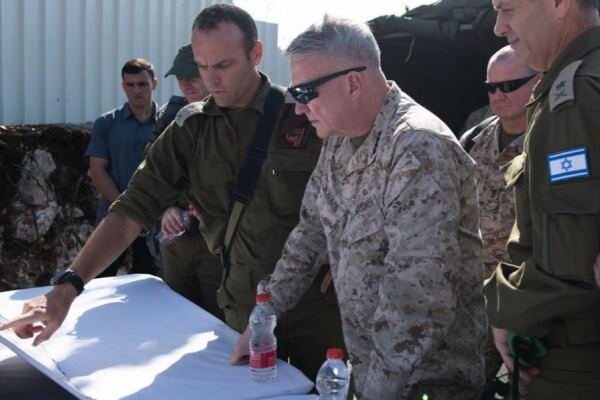

 07:40 - 2021/02/06
07:40 - 2021/02/06
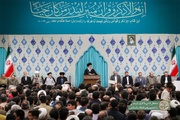
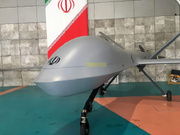
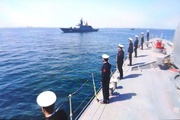
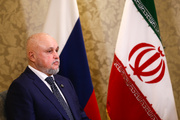





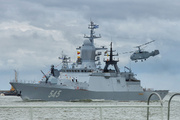












Your Comment